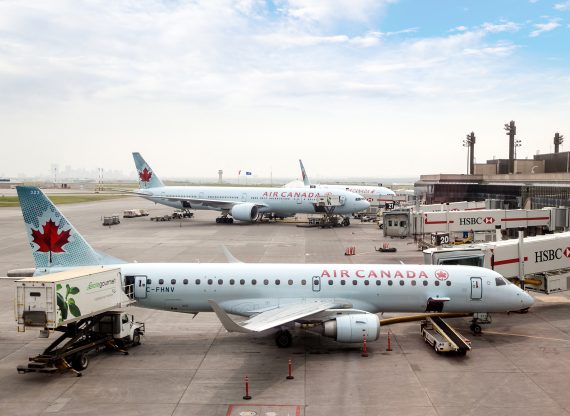The Canadian airline industry deserves to be supported now

Earlier this month, unions representing Canadian airline workers called on the federal government to provide $7-billion in aid to the hard-hit aviation sector. The plan has the support of the National Airlines Council of Canada, which represents the country’s largest carriers.
Now normally, government aid to specific companies or industries is not something the Montreal Economic Institute endorses. Market actors, with their dispersed knowledge, are in a better position to co-ordinate their actions with the help of price mechanisms than are bureaucrats and politicians with no skin in the game. Due to the lack of local knowledge, and to generally misaligned incentives, governments picking winners and losers leads almost inevitably to a misallocation of society’s resources.
But of course, these are anything but normal times. The COVID-19 pandemic, and government responses to it, have brought the Canadian airline industry to its knees these past six months. Passenger numbers in July, though up significantly from the previous month, were still 90 per cent below what they had been a year before. Air Canada and WestJet have laid off or furloughed a total of more than 30,000 employees so far.
In these extreme circumstances, government aid is justified—not only because the industry is hurting so badly, but because the government is itself responsible for a sizable portion of that hurt. When actions are taken in an attempt to protect the population as a whole, but the cost is borne disproportionately by one sector, then it is appropriate to indemnify that sector and thereby spread the cost among all taxpayers. In this case, travel restrictions and rules meant to protect everyone have devastated airlines’ revenues, so they deserve government assistance.
Of course, the easiest way to help is, as always, to first do no harm. Under the current circumstances, the government could explore whether there might not be ways of protecting the population that might be less disruptive to air travel.
Along these lines, the airline workers’ unions are also calling for the approval and deployment of rapid COVID-19 testing for passengers as one way of easing travel restrictions and eliminating the need for 14-day quarantines for anyone entering the country. Another idea would be to emulate the European Union, which at the end of June recommended that member states lift travel restrictions for residents of non-member countries if the number of new COVID-19 cases per 100,000 inhabitants in those countries was close to or below the EU average, among other criteria.
Once the government has gotten out of the way as much as possible, should it still be necessary, direct financial assistance for the airline industry would be justified in these exceptional times. Such corporate aid should be structured with a view to the eventual recuperation of taxpayer funds. Whether this be in the form of interestfree loans or equity investments or some other vehicle is for the parties involved to determine. The important thing is for taxpayers to get paid back at some point.
Extraordinary times call for extraordinary measures, to be sure. But governments need to find the least invasive ways of protecting us from the pandemic, which is to say, those measures that cause the least collateral damage. Supporting the aviation sector in the manner outlined above will not just help airlines survive and their employees keep working; it will give Canadians the freedom to start safely returning, at a pace they feel comfortable with given evolving circumstances, to a semblance of normal life.
Michel Kelly-Gagnon est président et directeur général de l’IEDM. Il signe ce texte à titre personnel.

